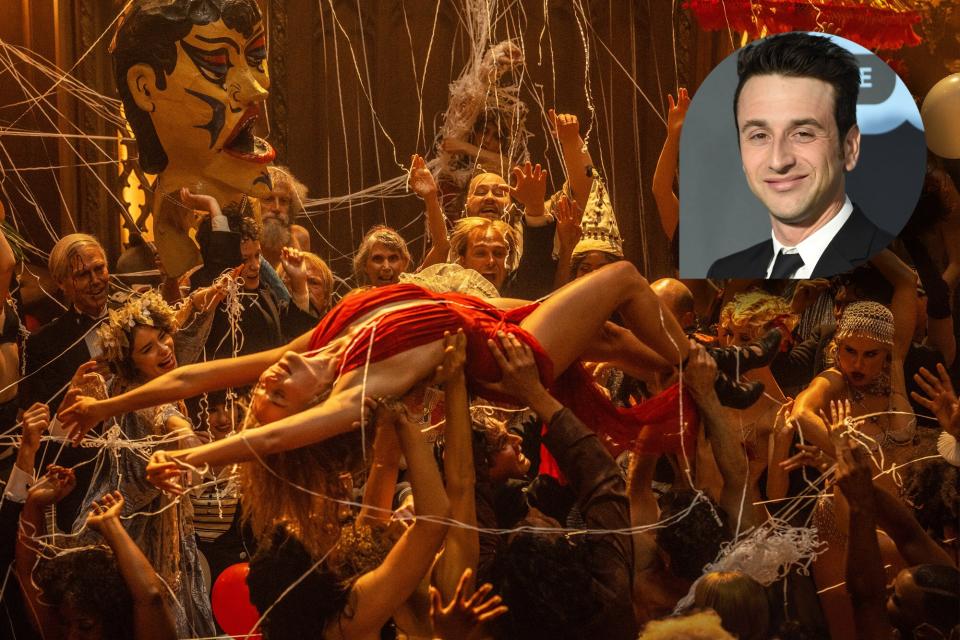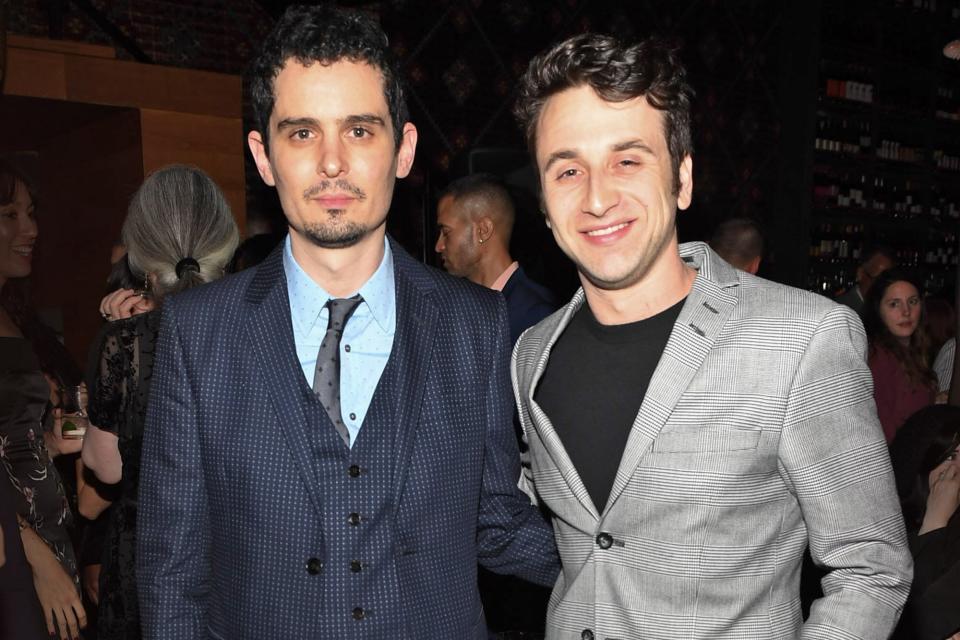Babylon composer Justin Hurwitz on La La Land comparisons and why he steered clear of 1920s jazz

- Oops!Something went wrong.Please try again later.
- Oops!Something went wrong.Please try again later.
- Oops!Something went wrong.Please try again later.
For director Damien Chazelle and composer Justin Hurwitz, not much has changed since they attended Harvard together — at least not when it comes to how they work together.
"So much of it is just like it was when we were 20, in terms of me being at the piano, making little demos, emailing them back and forth," Hurwitz tells EW ahead of the release of the duo's latest collaboration, Babylon.
Never mind the fact that they've both since won Oscars — Best Director for Chazelle and Best Original Score and Best Original Song for Hurwitz, both for 2016's La La Land — and seen their careers skyrocket since their work on 2014's Whiplash.
Even still, each new film (this is their fifth collaboration) marks a "different creative adventure," says Hurwitz. That was particularly true for Babylon, a sweeping epic about the rise and fall of a menagerie of characters striving to survive amid a great upheaval in 1920s Hollywood, then morphing from silent films to talkies. The drama clocks in at a whopping three hours and change, but there exists an earlier four-hour cut.

Scott Garfield/Paramount; Presley Ann/FilmMagic
"Damien sent [the script] to me in fall of 2019," Hurwitz recalls. "And around that time, he was like, 'Heads up — this is going to be, like, a four-hour movie.'"
When it was all said and done, a little over two hours of original music made its way into the film, more than twice the amount of music Hurwitz has ever composed for a single project.
For inspiration, the composer turned to some surprising places. Though the film starts off in 1926, and prominently features a jazz band, Hurwitz says he steered clear of 1920s jazz inspirations. "We knew we didn't want '20s jazz — it's just familiar," he explains. "We've heard it a million times. It's kind of quaint, it's a little tame. This movie is anything but tame."
Instead, he and Chazelle listened to a lot of rock 'n' roll, house music, and EDM — basically, anything that makes you want to get up and dance. "I was listening to music with dance hi-hats, and I was listening to music that had rises and drops in these moments that kind of build anticipation, and then just surge into these dance moments," Hurwitz recalls. "Those were probably my biggest inspirations, mood-wise."
Fans of La La Land may hear some brief similarities between the two scores. Hurwitz owns it: "There are no actual quotes from La La Land, but there were certain cues where we were going for a certain feeling, a bittersweet feeling, or a melancholy, that was the same feeling that we were going for there. And I'm the same composer and my musical grammar is the same."

Sonia Recchia/Getty Damien
However, if the audience makes the comparison, he's okay with that, too. "I always appreciate that in other composers, when you can hear just a few notes or a few measures and just know that's John Williams or that's Thomas Newman, because they have identities and they have sounds," he says. "So I think that's a good thing, usually, to have a voice that's identifiable, but you also don't want to repeat yourself. So that's just this line you kind of have to walk."
His work on Babylon feels primed to once again be a part of the Oscar conversation, but Hurwitz swears "nothing feels like a moment of pure brilliance" when he's composing. "It's all just bashing my head against the piano or the computer," he says, laughing.
One track in particular, the bittersweet theme for Manny and Nellie (played in the film by Diego Calva and Margot Robbie), was particularly hard to crack. Eventually, he came up with a blend of three different pianos: a beautiful Steinway, a slightly detuned piano for extra twang, and one extremely out-of-tune upright. (Other tracks Hurwitz is particularly proud of include "Call Me Manny," "Voodoo Mama," and "Damascus Thump," all of which can be heard here with the rest of the soundtrack.)
Now that Babylon is complete, Hurwitz plans to do more in-person concerts next year.
"I love going around and performing our scores, very often to picture," he says. "I recently turned Whiplash into that kind of show. I'm going to do a bunch more La La Land shows like that next year, and I'm really excited to get back in front of audiences and share our movies and our scores with people."
And his next film project? "It's probably what Damien's doing next."
Related content:

